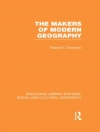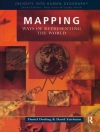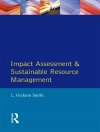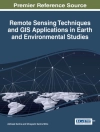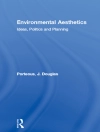In this book geography educators from around the globe discuss their research into the power of geographical thinking and consider successful strategies to implement, improve and advance geography education in research and practice. It addresses key topics in geography education, such as multicultural competence, the role of teachers, the geography curriculum, spatial thinking, geographic information systems, geocapabilities, and climate change. At a global level the contributors and editors bring together the most advanced collection of research and discussion surrounding issues in geography education. The book will be of interest to geography education researchers worldwide, including academics at university and teachers in schools, as well as professional geographers with an interest in education.
Inhoudsopgave
Chapter 1: Multicultural fieldwork to promote students’ intercultural competence.- Chapter 2: Listening to London’s young voices.- Chapter 3: Field work and geographic thinking amongst senior secondary students in Kano, Nigeria: the role of teachers.- Chapter 4: Thinking geographically and Spatial thinking in the Swedish curriculum in geography.- Chapter 5: The future in geographical thinking.- Chapter 6: Thinking space geographically.- Chapter 7: Geographical thinking and its role in climate change education: a case of Singapore.- Chapter 8: English geography textbook authors’ perspectives on developing pupils’ geographical knowledge and thinking.- Chapter 9: Geography teachers between formal training and teaching practices.- Chapter 10: How Geography as a school subject is defined in Singapore.- Chapter 11: Teach to develop geographical thinking.- Chapter 12: International differences in thinking geographically, and why it matters.- Chapter 13: Cyber GIS and Geographic Thinking.- Chapter 14: Geographical thinking through key concepts? Results of a symbiotic in-service teacher training course.- Chapter 15: What might powerful geographical knowledge look like?.- Chapter 16: Geographical Thinking: Is it a limitation or powerful thinking.- Chapter 17: Researching progress and sophistication in geography learning: Taking a critical stancet.- Chapter 18: Debating the place of knowledge within geography education: reinstatement, reclamation or recovery?.- Chapter 19: Reviewing the power of GIS-based enquiry learning in school geography.- Chapter 20: Students’ reflective thinking in geography lessons.- Chapter 21: The Feasibility Research of Bringing Fundamentals of Earth Science into Middle School Geography Curriculum of Mainland China – Based on Earth Science for the cultivation of students’ geographical thinking.- Chapter 22: Conceptualising Geo Capabilities and appreciating of the power of thinking geographically.- Chapter 23: Supporting geographical thinking in the classroom – the teacher and curriculum control.- Chapter 24: Geographic thinking.- Chapter 25: Geography in England’s primary pre-service teacher education: challenges and possibilities.
Over de auteur
Clare Brooks is Honorary Secretary of the International Geographical Union – Commission for Geography Education, and a member of the International Steering Group. She is also Chair of the UK Committee of the Commission. As Senior Lecturer in Geography Education at the UCL Institute of Education, she was worked on post-graduate programmes in geography education for fifteen years. Her research interests are in teachers’ use of their subject knowledge and how teachers geographical knowledge influences classroom practices.
Mary Fargher is a member of the UK Committee of the International Geographical Union – Commission for Geography Education. After six years working on post-graduate programmes, she now leads the MA Geography in Education and Teach First geography programmes at UCL Institute of Education. Her research interests are in the use of geospatial technologies in supporting high quality teaching and learning in geography.<
Lesson Planning (3rd edition) (2008), Making Assessment Matter (2010) and, as editor, Geography, Education and the Future (2011) and Master Class in Geography Education (2015). Graham is a long established member of the Geographical Association and an invited member of the UK Committee of the International Geographical Union (IGU).tly=” field=” although=” has=” also=” published=” on=” assessment, =” teacher=” workload, =” modernisation=” teaching=” workforce.=” his=” books=” include modernising=” schools (2007, =” with=” helen=” gunter),




